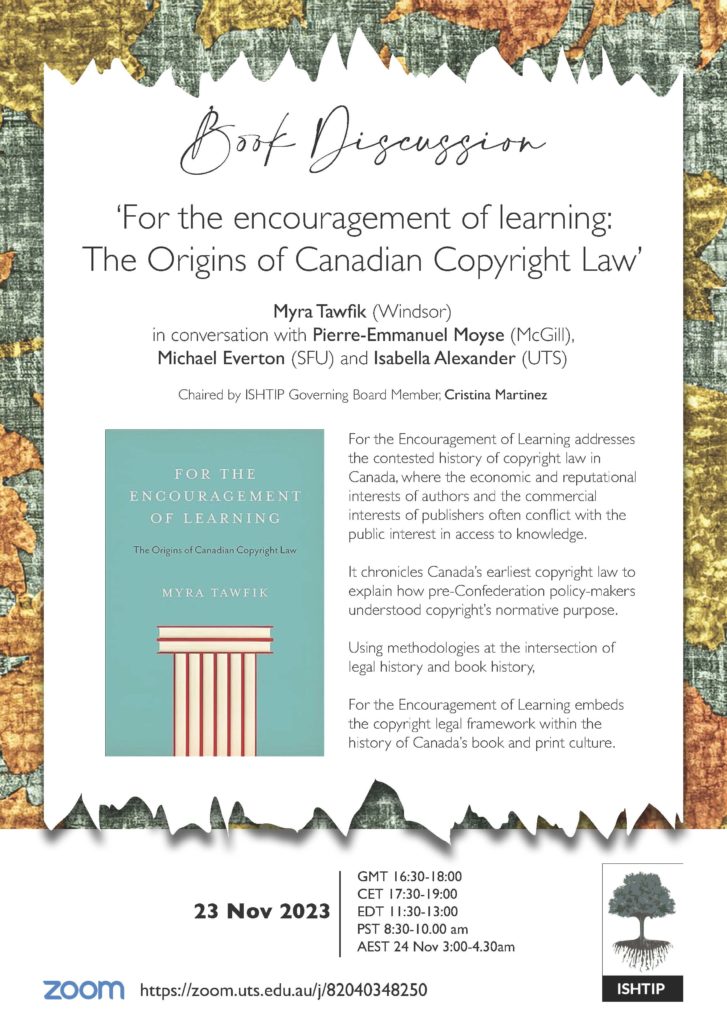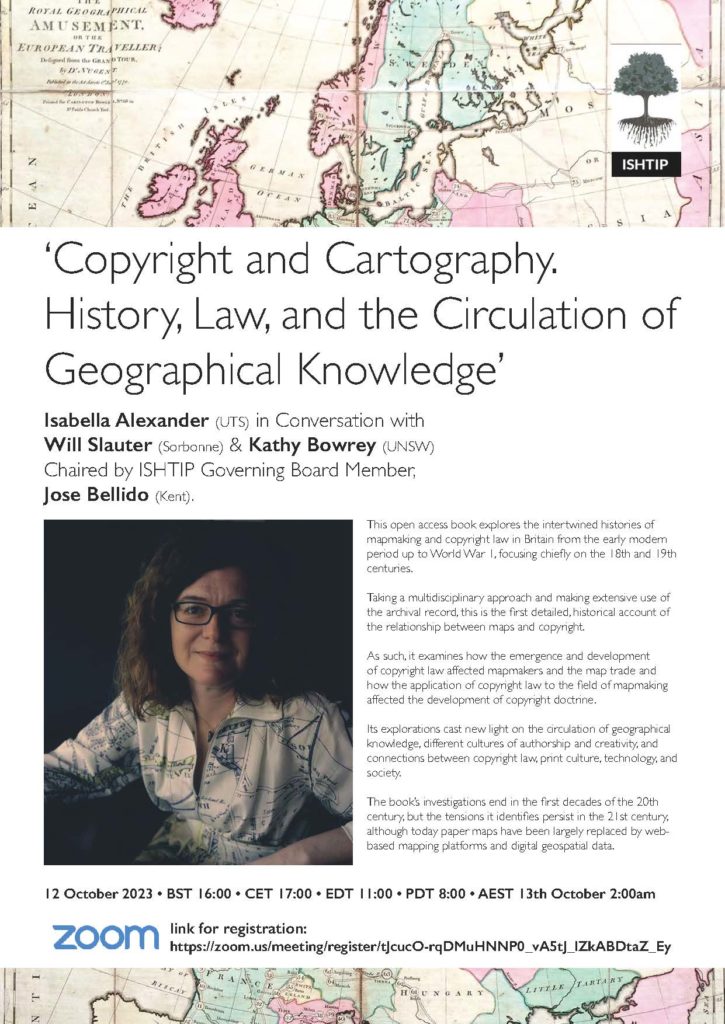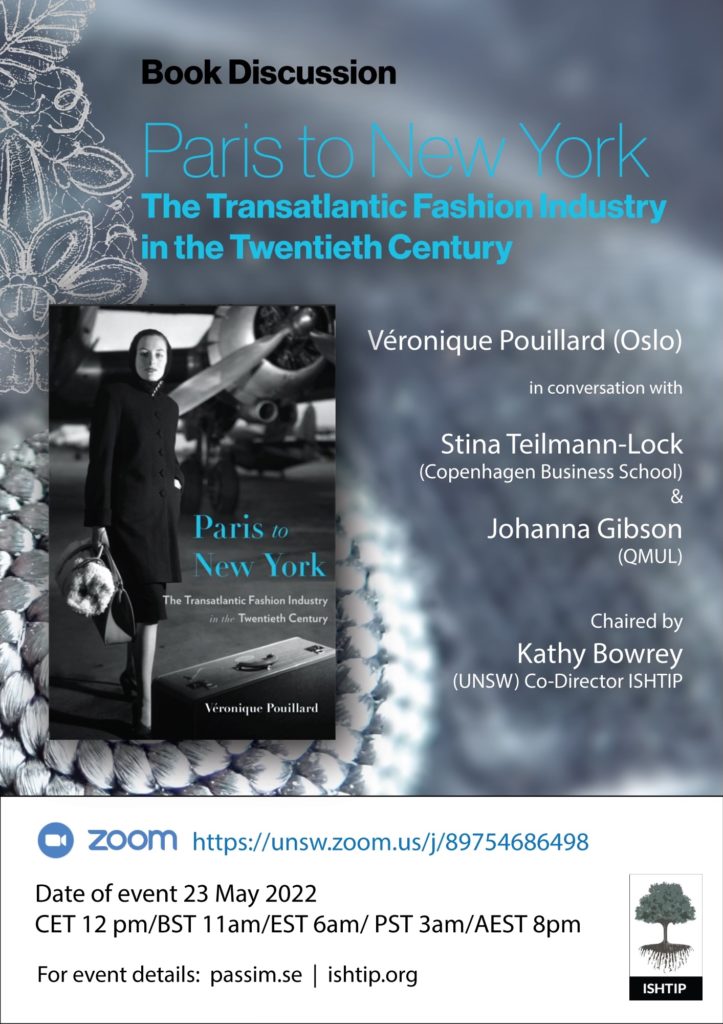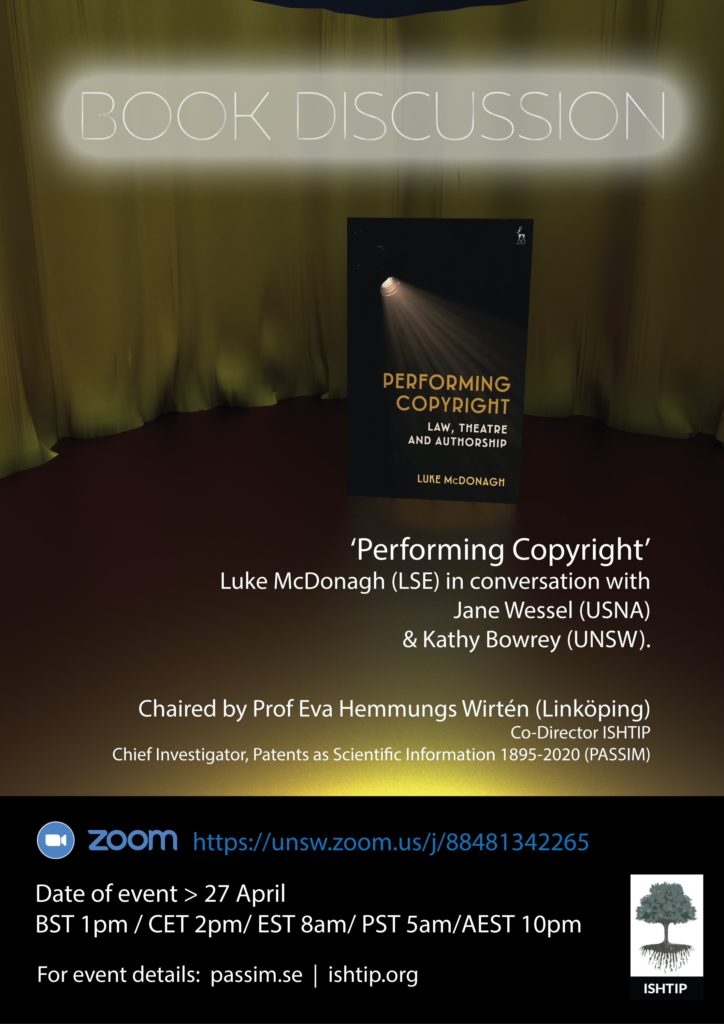Please register and save the date for the 15th Annual Workshop of the International Society for the History and Theory of Intellectual Property, which will take place in Boston on 26 and 27 June 2024. This year’s theme will be “Intellectual Property and the Anthropocene”.
More information can be found here: https://www.bu.edu/law/engagements/intellectual-property-and-the-anthropocene/
Speaking participants include:
Veronique Pouillard (University of Oslo, Norway)
Kristin Ranestad (University of Oslo, Norway)
Hyo Yoon Kang (University of Warwick, UK)
Desmond Oriakhogba (University of Western Cape, South Africa)
Zachary Mondesire (Boston University, USA)
Anna Saunders, (University College of London, UK)
Caoimhe Ring (University of Bristol, UK)
Jessica Lai (University of Wellington, New Zealand)
Kara Swanson (Northeastern University, USA)
Danilo Mandic (University of Westminster, UK)
Kaushalya Madugalla, (University of Peradeniya, Sri Lanka)
Aisling McMahon (Maynooth University, Ireland)
Christopher Robertson (Boston University, USA)
Brad Sherman (University of Queensland, Australia)
Gabriel Galvez-Behar (University of Lille, France)
Myrian Christmann (University of London, UK)
Peng (Alex) Zhou (University of Hong Kong, China)
Jean-Baptiste Scherer (University of Freiberg, Germany/ University of Paris, France)
Stacey Lantagne (Western New England University, USA)
Jeffrey Omari, (Gonzaga University, USA)
Cathay Smith(University of Montana, USA)
Jiarong Zhang (Trinity College, Ireland)
Adriana Craciun (Boston University, USA)
David Jefferson (University of Canterbury, New Zealand)
Rosemary Coombe (York University, Canada)
Hamish MacDonald (University Queensland, Australia)
Martin Kretschmer (University of Glasgow, Scotland)
Andrea Wallace (University of Exeter, UK)
Ruth Catlow (Furtherfield.org, UK)
Lindsay Stern (Harvard University, USA)
Vitor Ido (University of Sao Paolo, Brazil)
Alexandra Mogyoros (Toronto Metropolitan University, Canada)
The Program is still being finalised.
Accommodation: Early booking of accommodation is advised, as the prices in the Boston area in this period can be high.
ISHTIP is grateful to Professor Jessica Silbey and Boston University School of Law for their organisation and hosting.





